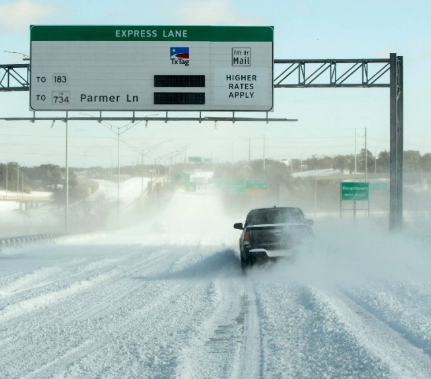Dealing with the aftermath of a DWI accident in Texas can be overwhelming, especially with the state’s strict two-year statute of limitations for filing claims. Victims often face not only physical injuries but also emotional and financial strain.
An Austin DWI accident lawyer plays a key role in protecting your rights and guiding you through Texas’s complex legal process. From securing compensation for medical bills to addressing emotional distress, these attorneys ensure every aspect of your case is considered.
They gather vital evidence—like witness statements and police reports—and use expert testimony to strengthen your claim. Their experience in negotiating with insurance companies is especially valuable, as insurers often try to reduce payouts.
Whether you’re dealing with trauma, lost wages, or rising medical costs, a skilled lawyer offers the expertise and support needed to pursue justice and fair compensation.
Key Highlights
- An Austin DWI accident lawyer makes sure that your claims are filed within Texas’s two-year statute of limitations, helping to avoid automatic case dismissal.
- Attorneys collect thorough evidence, such as blood alcohol concentration (BAC) tests, police reports, and testimony from expert witnesses to clearly establish liability.
- Lawyers help shield clients from the tactics used by insurance adjusters, ensuring that both economic and non-economic damages are accurately valued.
- Legal counsel effectively counters defense challenges by meticulously documenting sobriety tests and using accident reconstruction evidence.
- Attorneys aim for maximum compensation through various avenues, including insurance claims, victim compensation programs, and third-party liability claims.
The Impact of DWI Accidents in Austin and Texas
Every day, the harsh reality of driving while intoxicated (DWI) accidents impacts lives across Texas, transforming families and communities forever. With over 14,389 DWI-related fatalities reported between 2014 and 2023, it is alarming to note that these incidents account for 37% of all traffic deaths in the state, placing Texas among the leaders in alcohol-related fatalities nationwide.
In Austin, the statistics paint a sobering picture: 8% of traffic crashes involve intoxicated drivers, and a staggering 27% of fatal accidents in Travis County test positive for alcohol. The economic implications are equally distressing, with Texas suffering $56.2 billion in crash-related losses in 2023 alone. Post-pandemic trends indicate a concerning rise in alcohol consumption, especially among women, with one in five individuals surpassing recommended drinking limits. Compounding this issue is the dramatic 500% surge in bicycle fatalities in Austin during 2023, highlighting an urgent need for targeted prevention strategies and more robust enforcement of existing laws. Understanding the specifics of these cases is crucial for determining legal actions and potential compensation.
For business owners and community leaders, these statistics are not just numbers; they represent a pressing challenge that demands immediate attention. The increasing prevalence of DWI accidents can lead to higher insurance costs, decreased productivity, and a strained public health system. Addressing this issue is not only crucial for public safety but also for the economic health of the community. Legal representation is vital for victims pursuing DWI accident claims to ensure their rights are protected and they receive fair compensation.
To tackle this growing concern, consider implementing robust employee education programs about the dangers of impaired driving and promoting safe transportation options. Businesses can also collaborate with local authorities to support community outreach initiatives aimed at reducing alcohol consumption and enhancing awareness about the risks associated with DWI. By engaging in these proactive measures, organizations can contribute to safer streets and ultimately foster a healthier, more responsible community.
Legal Time Limits and Eligibility for DWI Claims
Claim eligibility hinges on several key factors, such as the ability to establish driver negligence and demonstrate how intoxication led to damages. It’s important to be aware that Texas law does include exceptions to these filing deadlines.
For instance, if the injured party is a minor, the clock is paused until they reach age 20, and cases involving mental incapacity may also have different considerations. Failing to meet these deadlines typically results in an automatic case dismissal, jeopardizing your right to compensation. Additionally, wrongful death claims may be pursued by eligible family members if the accident results in a fatality, further complicating the legal landscape.
To safeguard your claim, it’s vital to start documenting evidence as soon as possible. This includes obtaining police reports and blood alcohol content (BAC) test results. Additionally, consulting with a personal injury attorney within 30 days of the accident can significantly improve your chances of successfully navigating the legal process.
If your claim involves a government entity, keep in mind that you must provide a six-month notice before filing suit, adding another layer of complexity to the situation. Expert trial attorneys can help you understand these legal nuances, ensuring you protect your rights while focusing on recovery and securing the compensation you deserve.
Types of Compensation Available to DWI Accident Victims
Compensation options for DWI accident victims can be categorized into several key types, each addressing distinct aspects of the losses suffered:
- Economic damages are straightforward and encompass tangible costs such as medical expenses, repairs for property damage, and lost income due to an inability to work. For instance, if a victim incurs $50,000 in medical bills and loses $20,000 in wages, they have a solid foundation for claiming economic damages.
- Non-economic damages focus on the more subjective aspects of a victim’s experience, such as pain, suffering, and emotional distress. These damages can be more challenging to quantify, yet they are vital for acknowledging the profound impact an accident can have on a person’s quality of life.
- Punitive damages serve a different purpose; they are intended to punish particularly reckless behavior, such as that of a drunk driver who shows a blatant disregard for safety. Awarding punitive damages can help deter future misconduct, reinforcing societal standards of responsible behavior.
- Wrongful death compensation is crucial in tragic cases where DWI accidents result in fatalities. This type of compensation provides essential support for surviving family members, helping them navigate both emotional and financial hardships in the aftermath of a loved one’s death.
- Additional compensation sources such as victim compensation programs and third-party liability claims can further assist victims. These resources may offer support beyond traditional claims, addressing gaps in recovery.
Understanding these various compensation avenues is vital for DWI accident victims and their families. It empowers them to advocate for their rights and to pursue the support necessary for recovery and rebuilding their lives. By recognizing the comprehensive impact of DWI accidents, victims can take informed steps toward securing the restitution they deserve.
Essential Evidence Collection and Documentation
Effective preservation of evidence starts with thorough documentation of the accident scene. This includes taking photographs and videos that capture vehicle damage, road conditions, and the behavior of the intoxicated driver. Imagine having clear, compelling visuals that illustrate the scene and the circumstances surrounding the incident—this can significantly bolster your case.
But documentation doesn’t stop there. It extends to official police reports, chemical test results, and medical records that link your injuries directly to the accident. Consider how witness statements, surveillance footage, and expert testimonies from accident reconstruction specialists can add layers of credibility to your claim. For instance, an expert’s analysis might reveal critical details about the nature of the collision that were not immediately apparent.
Financial documentation is equally vital; medical bills and records of lost wages can help quantify the damages you’ve incurred. Additionally, electronic evidence—such as text messages and GPS data—can provide crucial support for your claim, showing, for example, that the driver was distracted or impaired at the time of the accident.
The systematic collection and preservation of this evidence create a robust foundation for demonstrating liability and securing the compensation you deserve as a DWI accident victim. By understanding the types of evidence that can strengthen your case and actively engaging in the collection process, you can navigate the complexities of your situation with confidence.
The Role of Expert Witnesses in DWI Cases
Expert witnesses in DWI cases include a variety of specialists whose insights can dismantle the prosecution’s claims:
- Forensic toxicologists meticulously analyze blood alcohol concentration (BAC) test results, scrutinizing factors like testing accuracy and individual metabolism that could affect these readings.
- Accident reconstruction experts apply scientific analysis to determine causation, helping to clarify whether intoxication was indeed a factor in a crash.
- Breathalyzer specialists assess the calibration and maintenance of devices used to test sobriety, ensuring they meet legal standards.
- Medical experts can identify health conditions that may lead to symptoms often mistaken for intoxication, such as diabetes or neurological disorders.
- Field sobriety test analysts review the adherence to proper testing protocols, which can reveal potential flaws in the administration of these tests.
To ensure their testimony is admissible, these experts must meet stringent legal standards under Rule 702, emphasizing relevance, reliability, and adherence to peer-reviewed methodologies. For defense attorneys, collaborating effectively with these experts is crucial. It allows them to craft strong defense narratives, distilling complex technical concepts into understandable terms for juries.
Incorporating expert witnesses into DWI defense strategies not only strengthens the case but also addresses common concerns business owners face when dealing with legal challenges. By understanding the role of these specialists, you can better navigate the intricacies of DWI cases and protect your interests.
Navigating Insurance Company Negotiations
Navigating the aftermath of a DWI accident can feel overwhelming, especially when it comes to negotiating with insurance companies. Claims related to alcohol-related crashes often see payouts significantly reduced due to complex negotiations. Understanding the nuances of insurance policies and adopting effective negotiation strategies can make all the difference in securing the compensation you deserve.
The key to successful negotiations begins with promptly initiating your claim and meticulously gathering evidence. Insurance adjusters are skilled at minimizing payouts, often disputing liability or undervaluing injuries. However, skilled attorneys counter these tactics by highlighting the clear liability of the drunk driver, thoroughly documenting both economic and non-economic damages, and seeking additional avenues for compensation when necessary.
Consider a scenario where a business owner faces a DWI-related claim. They find themselves amidst a negotiation process that can last several months, with multiple settlement offers exchanged. If the insurance provider does not present a fair offer, attorneys may escalate the situation by threatening litigation or initiating formal legal proceedings. This often prompts insurance companies to reconsider their offers, as they aim to avoid the costs and uncertainties of a trial.
In today’s landscape, where technology plays a pivotal role, leveraging digital evidence, such as traffic camera footage or social media activity, can significantly bolster your case. The right approach can turn a challenging negotiation into a successful resolution, ensuring you receive the compensation necessary to move forward.
Overcoming Common Defense Tactics in DWI Claims
To effectively counter these sophisticated defense tactics, it is imperative to adopt a comprehensive approach grounded in solid evidence and expert insights. Here are key strategies to bolster your position:
- Secure Timestamped Evidence: Gathering clear, timestamped evidence from various sources can help establish a precise chronology of events. This can include anything from surveillance footage to witness testimonies, providing a solid timeline that supports your claims.
- Engage Expert Witnesses: Utilizing qualified expert witnesses can be pivotal in validating the methodologies behind sobriety testing. Their insights can lend credibility to your case, especially when addressing challenges to testing procedures or results.
- Maintain Thorough Documentation: Documenting all chemical test protocols and maintenance records is vital. This meticulous approach ensures that every detail regarding how tests were administered and calibrated is available to counter any claims of inaccuracies.
- Present Video Evidence: If available, video footage showing the administration of standardized field sobriety tests can be a powerful tool. It provides visual confirmation of the procedures followed, potentially undermining defense arguments regarding improper administration.
- Develop Comprehensive Timelines: Creating extensive timelines that correlate impairment indicators with blood alcohol concentration (BAC) levels can help paint a clearer picture of the events leading to the DWI claim. This detailed narrative can effectively counter alternative explanations put forth by the defense.
Successfully navigating a DWI claim requires anticipating and dismantling the common defense strategies that may arise. By preparing thoroughly and presenting a well-supported case, you can effectively address attempts to invalidate arrests, testing protocols, or claims of impairment. The key lies in leveraging credible evidence and expert testimony to reinforce your position, ensuring that your case stands strong against the challenges ahead.
Choosing the Right Austin DWI Accident Attorney
When faced with a DWI charge, the stakes are incredibly high—not only can a conviction lead to significant legal penalties, but it can also jeopardize your personal and professional life. In Texas, DWI offenses can result in fines and a potential jail sentence, not to mention the impact on your employment and insurance rates. Given these consequences, selecting the right attorney in Austin is crucial for navigating the complexities of your case effectively.
Begin by examining the qualifications of potential attorneys. Look for those with specialized training from organizations like the National College for DUI Defense, as this indicates a commitment to understanding the intricacies of DWI laws and defense strategies. A qualified attorney should have a proven track record of successfully challenging evidence, negotiating favorable plea deals, and adeptly managing both the criminal defense and civil injury aspects of DWI cases.
Consider an attorney’s reputation within the community—professional credentials, peer reviews, and client testimonials are excellent indicators of their effectiveness. For instance, an attorney who has consistently received positive feedback for their clear communication may help alleviate concerns about being left in the dark during your case. Ask about their policies on client communication, including response times and how often you can expect updates on your case’s progress.
Transparency in the attorney’s fee structure is also vital. Ensure that they provide a detailed breakdown of all costs and payment options. This will help you understand potential financial implications while ensuring that you receive quality legal representation without any unpleasant surprises down the line.
In Summary
DWI accidents pose a significant risk in Austin, with Texas reporting over 25,000 alcohol-related crashes in the previous year. Victims of these accidents require seasoned legal assistance to secure the compensation and justice they deserve.
A proficient DWI accident attorney skillfully maneuvers through intricate insurance negotiations, gathers vital evidence, and effectively counters defense strategies. It is crucial for victims to understand their claims and to choose qualified representation, as this can significantly influence the outcome of their cases.
At Batrice Law Firm, we pride ourselves on being the premier personal injury attorneys in Austin, Texas. Our dedicated team is committed to protecting the rights of accident victims and ensuring they receive the justice they deserve.
We understand the complexities of DWI accident claims and are here to provide the legal support you need. If you are facing the aftermath of a DWI accident, we are ready to help you navigate this challenging process and fight for your rights.




